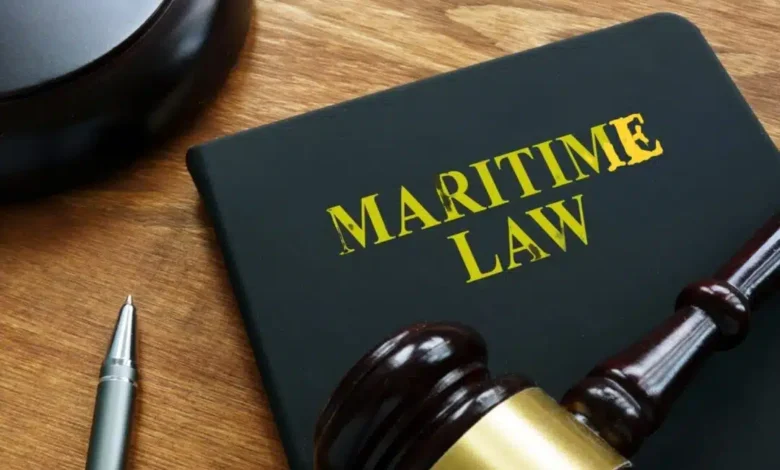Maritime Laws in UAE

Over the centuries, sea routes have been used to transport goods which are the backbone of international trade. It is imperative for the thriving economies in the world. Water remains the oldest means of transporting goods from one place to another.Even today, the waters are being used for trade movements. In today’s time, it is inevitable that there is no mechanism to regulate the movements of water. Therefore, to control and administer the water movements a proper regulatory mechanism is in place.
You can visit the Top Lawyers in Dubai Here.
It is a need to have laws and legislation to govern maritime matters. The laws, treaties, and conventions related to water movements are called maritime laws. They administer maritime businesses, companies, firms, and other nautical issues. This may include shipping, transit, and transportation in open waters.The UAE is significantly surrounded by water from 3 sides of its borders. This makes its role even more crucial. The UAE has set up a prominent maritime center in the world.
Internationally the rules, and laws pertaining to the utilization of sea and oceans are called the Law of the Sea. Under maritime law, there is a set of different rules and regulations that keeps a check and balance over what goes in and out of the sea, ocean, and open waters.All the rules and regulations are introduced to resolve a large number of disputes, deadlocks, and conflicts that may arise. This makes sure that people and companies working in such lines are protected and secured. Furthermore, it also ensures that everyone behaves correctly and remains well-mannered.
Maritime law is a system of privacy laws that are all about ships and commercial businesses of shipment. The maritime industry has been an ever-growing and ever expanding industry in the world. Nonetheless, the UAE has played a prominent role in boosting the maritime industry. The UAE holds a strategic position in the shipping industry with almost 12 commercial trading ports. This immensely contributes to the country’s GDP. One of the biggest ports in Jebel Ali Port is also known as the free-zone area. It is part of the top 10 largest seaports operations at the moment.
In UAE maritime industry is administered by Federal law no. 26 that narrates the layout as how the industry functions. It was introduced back in 1981 considering the importance of maritime matters. It may include maritime issues like registration of vessels, ownership of vessels, towage, pilotage, crews, and their contracts, arrest, and mortgage, charter parties, agreement of carriage, collisions, marine insurance, salvage to general average, and the list goes on.
You can also visit Top Law Firms in Dubai Here.
The UAE has adopted maritime laws in line with international maritime standards. In the UAE, all maritime issues are directed to the UAE court system. The disputes land up in civil courts as well as in commercial courts too. UAE does not have specialized courts that specifically listen to shipping-related cases. There are judges and juries present in UAE courts who have plenty of knowledge and understanding of the regulations and shipping cases.
Most of the shipping cases are addressed in the Arabic language. In the legal case, the arguments are carried out. There are written pleadings, court hearings, and appearances involved in the legal case. Moreover, documentation is also submitted to the courts by the parties in the legal case.However, maritime lawyers are the best in helping to resolve maritime-related problems. They are capable of offering top notch services and legal advice related to maritime issues. UAE courts take up the jurisdictions for the disputes depending upon the circumstances.
More recently in 2018, the UAE government introduced changes to Federal laws. Under this, it clarifies the procedure of arbitral before a case goes to court. This encourages arbitration in the shipping case. Therefore, arbitration is governed by Federal law no 11 which adheres to civil procedural law.Now foreign arbitral awards are enforceable in the country. UAE has signed up with the UN convention over the enforcement and recognition of the foreign arbitral award. It was done in 1958 and again in 2006 in New York.
According to them, the enforcement of the arbitral foreign award is only refused over solid grounds with some valid reasons discussed below:
- The two parties in the arbitration contract have some kind of incapability or incapacity. An arbitration agreement is no longer valid as per the law of the land or parties subjected to it where the arbitral award was made. No proper notice of the appointment of the arbitrator is given to the party against whom the arbitral award is given.
- As per maritime laws, it is the responsibility of the carrier to put the vessel in a seaworthy condition. They have the responsibility to ensure that the carriage of goods is carried in a suitable condition.
- Furthermore, he is the one who is responsible for stowing and storing the cargo in a vessel. Therefore, he is the one who should ensure the goods are carried in good condition from one port to another.
- Added, the carrier has the responsibility for any delay in the delivery of goods unless it is proved otherwise.
- Considering the heavy responsibility of the Carrier the goods are limited to the sum of AED 10,000 for every package or unity upon him. Moreover, a sum of AED 30 per kilogram per gross weight of commodities. Whichever is the greater is taken up.
- If goods are shipped in boxes, cases, and containers and the bill specifies the number of packages in every container, unit, or box, then each of these will be deemed to pack with fixing of the upper limit of liability. A carrier cannot restrict its liability against a shipper.
- Under maritime law, if incorrect or inaccuracies are present in the information provided, the responsibility lies with the shipper, not the carrier. The carrier is not held responsible in case of loss or damage to the goods. If the shipper deliberately stated false particulars over the bill of lading, then the shipper is solely responsible.
- In the end, we can say that the maritime mechanism is extensive and comprehensive. Moreover, the legal maritime system is quite complex to understand and comprehend. Over time, all the regulatory bodies have taken the initiative to develop laws to support the maritime industry.
This is done to support the economy and promote trade among different countries. The UAE maritime framework is varied and vast. If you review them closely you will witness the intent of the UAE government to support the maritime industry to become the global leader in the world.



